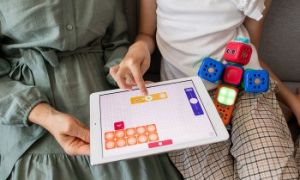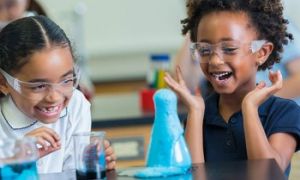Simple songs about consent gently introduce children to concepts like body autonomy, boundary-setting, and respectful communication in ways that feel playful, affirming, and easy to remember. By pairing repetitive rhymes with hand motions, call-and-response, and relatable scenarios, these songs help children internalize messages such as “I can say no,” “I ask before I touch,” and “My voice matters.” Whether used in circle time, transition moments, or home routines, they offer educators and families an emotionally safe, joyful way to teach consent from the ground up.
Song: “I Ask, You Say”
Theme: Choice, body autonomy, and respect. Includes hand-raising and pointing actions to reinforce asking and listening.
(Tune: “Twinkle Twinkle”)
I ask before I take or play.
You can say yes or “no, not today.”
Your body’s yours, and mine is mine.
We check with words—it works just fine!
Safe and kind is how we grow,
I ask, you say—then off we go!
Song: “Stop Means Stop”
Theme: Responding to boundaries in play. Clapping and pausing actions to show when we stop and why it matters.
(Tune: “If You’re Happy and You Know It”)
If you say stop, I stop right there (clap clap),
I show I care, I’m being fair (clap clap).
We use our words and take a break,
We help each other feel great!
Song: “My Voice Matters”
Theme: Speaking up, emotional safety. Includes gentle call-and-response and heart gestures for connection.
(Tune: “London Bridge”)
If I feel unsure or sad,
I can speak, and that’s not bad!
Safe adults will hear and say,
“It’s okay, we’re here today!”
Call and Response Consent Songs For Young Children
Call and response is brilliant for reinforcing consent concepts with young children. It invites participation, models respectful interaction, and gives children space to hear language they can later use themselves. Here are some developmentally friendly formats with built-in rhythm and repetition:
“Can I?”
- Leader sings:
Can I play with you today? - Children respond:
You can ask — that’s the way! - Leader:
Is a “no” okay to say? - Children:
Yes it is — we all may say! - Leader:
What if someone says “not now”? - Children:
We respect it, and say “wow!”
“My Voice Speaks”
- Leader:
If something feels a little wrong... - Children:
My voice is brave, my voice is strong! - Leader:
What do we say when we’re unsure? - Children:
We talk to someone kind and pure!
“Stop and Go”
- Leader:
When I say go, we dance and play... - Children:
We move and shake in a joyful way! - Leader:
When I say stop, what do we do? - Children:
We freeze in place—it’s safe for you!
Teaching consent to young children doesn’t have to be complex—it can begin with a gentle rhyme, a hand motion, or a playful exchange of “Can I?” and “That’s okay.” These songs, strips, and posters give children language they can use, voices they can trust, and boundaries they can honor. When educators and families sing together, they’re not just making music—they’re building a culture of respect, safety, and care from the very first verse.
Further Reading
Child Protection Activities For Preschoolers
Lulu Says Yes, Lulu Says No


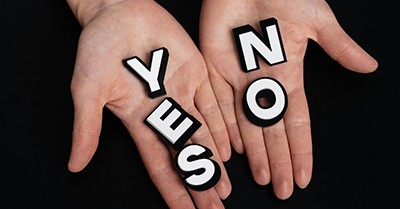
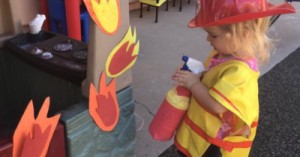
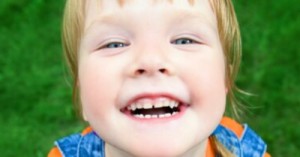
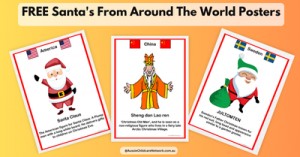

 Open ended questions cannot be responded to with one word answers such as yes or no. These types of questions enables a child to provide
Open ended questions cannot be responded to with one word answers such as yes or no. These types of questions enables a child to provide During your child’s preschool years, an important milestone begins to emerge. This is the development of pre-writing skills. Pre-writing skills are used to encourage, develop
During your child’s preschool years, an important milestone begins to emerge. This is the development of pre-writing skills. Pre-writing skills are used to encourage, develop Open ended materials enables children to play freely. They are objects that have no rules to follow, use or function. Raw materials that can be
Open ended materials enables children to play freely. They are objects that have no rules to follow, use or function. Raw materials that can be An Acknowledgment of the Country is a way of showing respect for the Traditional Owners and can be given by both non-Indigenous people and Aboriginal
An Acknowledgment of the Country is a way of showing respect for the Traditional Owners and can be given by both non-Indigenous people and Aboriginal Language plays an important role in a child’s development. It enables a child to communicate effectively with their family, learn at school, socialize with friends,
Language plays an important role in a child’s development. It enables a child to communicate effectively with their family, learn at school, socialize with friends, Like adults, children have to deal with their own stress in life. Moving house, starting a new school, preparing for a new sibling - these are
Like adults, children have to deal with their own stress in life. Moving house, starting a new school, preparing for a new sibling - these are Playdough is such a versatile material. It provides numerous benefits to children as they manipulate it, it is safe and soothing and provides children with
Playdough is such a versatile material. It provides numerous benefits to children as they manipulate it, it is safe and soothing and provides children with Teaching children about sustainability enables them to appreciate and respect the natural environment. Early childhood services can provide meaningful hand on learning experiences in order
Teaching children about sustainability enables them to appreciate and respect the natural environment. Early childhood services can provide meaningful hand on learning experiences in order Recycling is an important concept that teaches children to care for the environment. It encourages children to be responsible and show a growing appreciating for
Recycling is an important concept that teaches children to care for the environment. It encourages children to be responsible and show a growing appreciating for When children apply paint to paper, glue things together, or pound a lump of clay, they experiment with colour, shape design and texture.
When children apply paint to paper, glue things together, or pound a lump of clay, they experiment with colour, shape design and texture.
